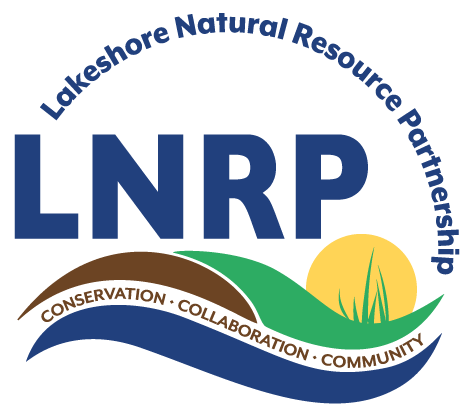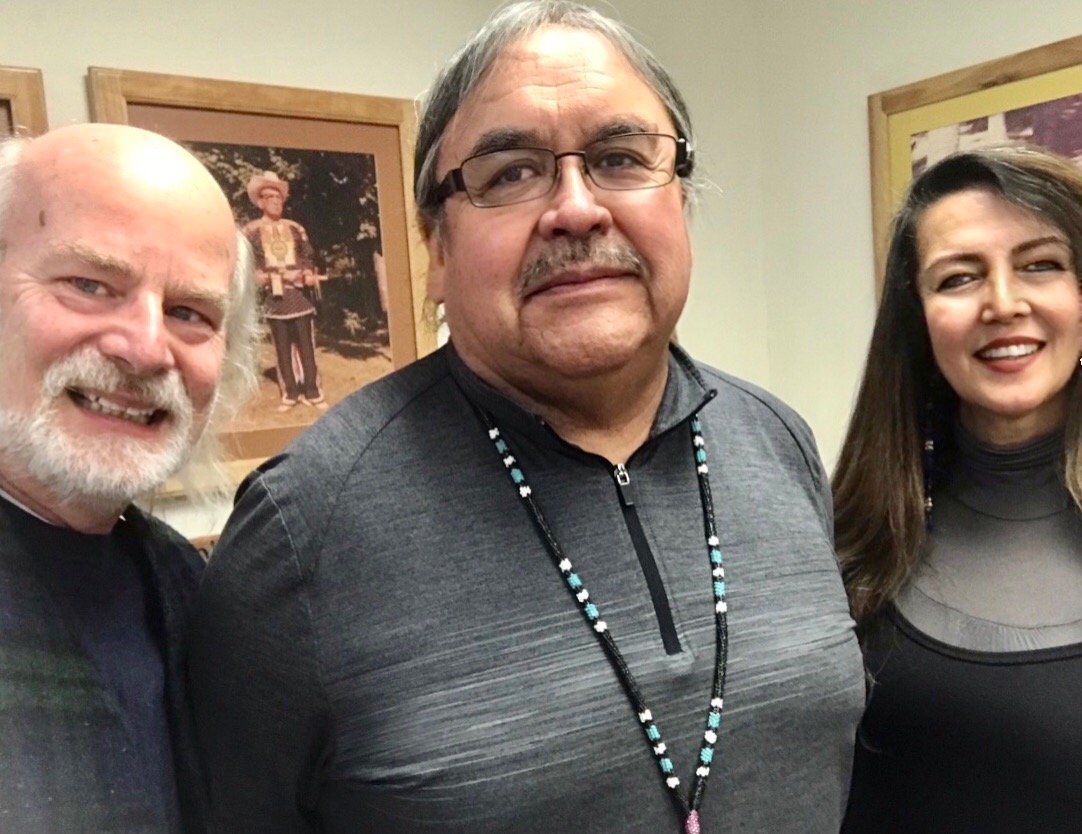LNRP's Land Acknowledgment Statement
Lakeshore Natural Resource Partnership (LNRP) acknowledges what is now known as Eastern Wisconsin as part of the ancestral homeland of the Menominee Nation. We recognize the Menominee as well as more recent Nations that have lived and thrived on this land that we love and celebrate.
As LNRP works to cultivate conservation, collaboration, and community, we recognize the Indigenous peoples as the original and longest-serving caretakers of this land. We respect their traditional ecological knowledge and reverence for the natural world and seek to honor those values and priorities as we continue to steward the shared land and water of Wisconsin’s Lakeshore region.
A Brief History of the Great Lakes Region and Its Peoples
Dave Grignon (Nawahquaw) and the staff at the Menominee Cultural Center and Museum kindly provided their insights for our Land Acknowledgement Statement. Shown here with Rolf Johnson (left) and Elda Brizuela (right), Dave is a Tribal Leader and the Tribal Historic Preservation Officer and Director of the Menominee Cultural Center and Museum.
Human presence in the Great Lakes region dates back to the end of the last Ice Age (the Pleistocene Epoch), as evidenced by Indigenous oral traditions as well as archaeological and geological science. As the ice sheet retreated, it shaped the Great Lakes into their current form, fostering a diverse ecosystem that supported the early inhabitants, including the Menominee and Ho Chunk Tribes. These Tribes have roots in this region spanning over 10,000 years, maintaining vibrant cultures despite violent land dispossession through colonization and treaties broken by the U.S. Government.
The Indigenous Tribes of the Great Lakes have a profound understanding of the natural world, which they have preserved through generations of oral tradition and practical knowledge. Today, twelve Tribal Nations reside in Wisconsin, some having been forcibly relocated here from their ancestral lands by the U.S. Government. These Tribes continue to advocate for their rights, heritage, and connection to the land. Land Acknowledgement Statements serve to recognize the historical inhabitants of the land, condemn its dispossession, and highlight the importance of Tribal knowledge and sovereignty.
Our Commitment to Learning from Traditional Ecological Knowledge (TEK) and Enacting Our Land Acknowledgement Statement
“As our cultures disappear with the wilderness that sustained us, we are a vast library, a repository of knowledge, intelligence, and an understanding of the earth that is being lost to the world.”
— Ingrid Washinawatok El-Issa (Flying Eagle Woman), Menominee Tribe
LNRP is dedicated to the stewardship of Northeast Wisconsin’s land and waters, an area historically inhabited by Indigenous peoples who lived sustainably and were deeply connected to the natural world. Today's conservation efforts are informed by the centuries of traditional ecological knowledge (TEK) accumulated by these communities. This knowledge encompasses an understanding of ecological cycles, seasonal changes, and the intricate relationships within the web of life, emphasizing reciprocity and respect as key elements of sustainability.
Wolf River (2023)
Indigenous agricultural practices, rooted in TEK, offer valuable lessons for modern conservation. The Menominee, for instance, are internationally renowned for their sustainable forestry practices, which have been in place for over 170 years in their Tribal Nation along the Wolf River. Their methods, established under Chief Oshkosh in 1854, continue to inspire environmental stewardship worldwide.
LNRP’s Land Acknowledgement Statement, along with our Biodiversity Statement, provide fundamental guiding principles for our work and the work of the 16 partner groups that make up the LNRP family. These principles reflect a deep respect for Indigenous cultures and their historical connection to the land. They also underscore the valuable insights TEK offers for contemporary conservation efforts.
The challenge now is to translate these statements into tangible actions. Beyond acknowledging and respecting Indigenous wisdom, LNRP aims to develop programs, events, and collaborations that embody these principles, ensuring that our Land Acknowledgement Statement becomes a living document that drives meaningful change.


